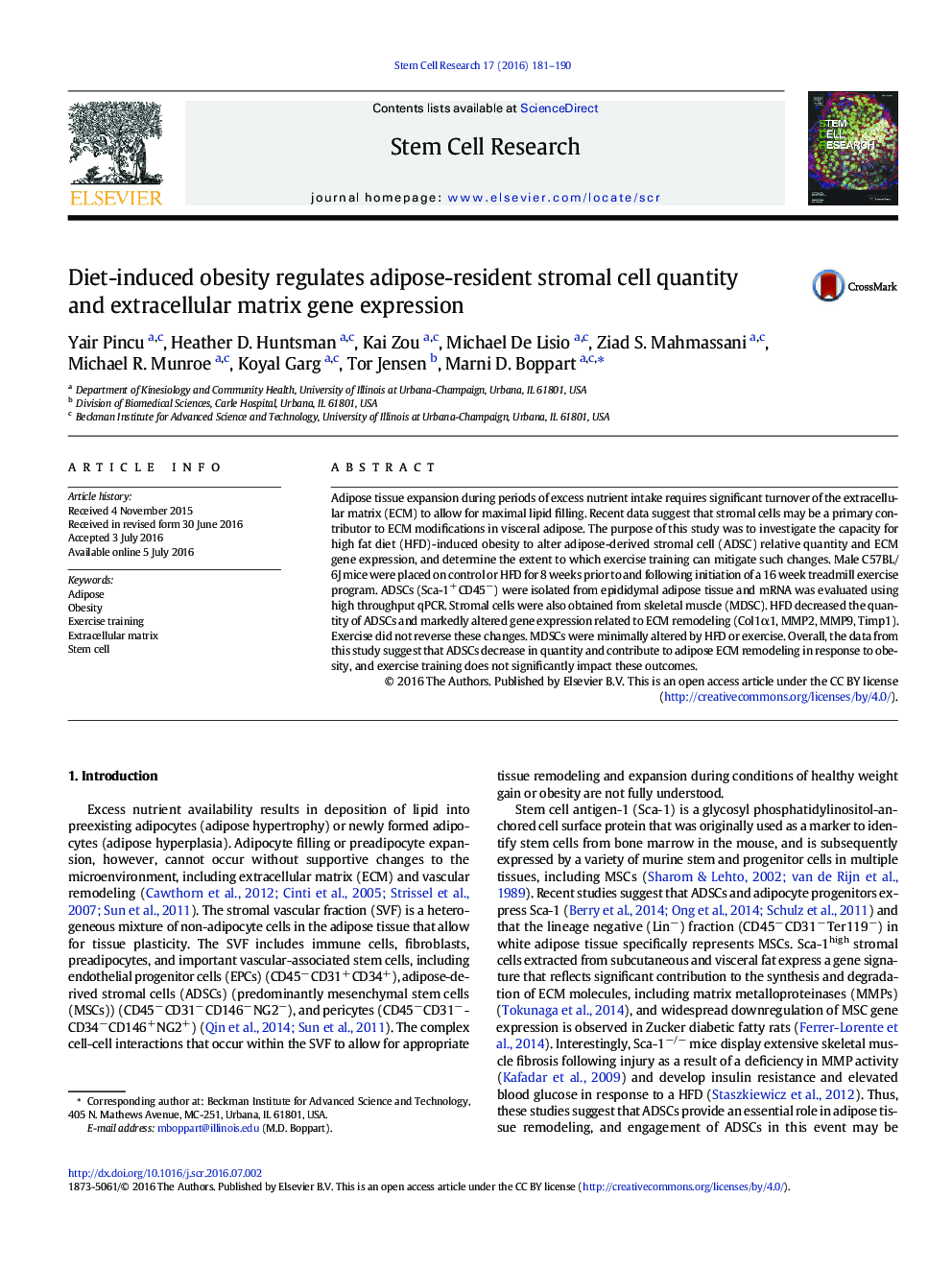| Article ID | Journal | Published Year | Pages | File Type |
|---|---|---|---|---|
| 2094109 | Stem Cell Research | 2016 | 10 Pages |
•HFD-induced obesity decreases the relative quantity of stromal cells in adipose.•Sustained HFD markedly alters gene expression related to ECM remodeling in ADSCs.•Exercise training does not mitigate the obesity-related ADSC gene expression profile.•MDSCs were minimally impacted by HFD-induced obesity or exercise.
Adipose tissue expansion during periods of excess nutrient intake requires significant turnover of the extracellular matrix (ECM) to allow for maximal lipid filling. Recent data suggest that stromal cells may be a primary contributor to ECM modifications in visceral adipose. The purpose of this study was to investigate the capacity for high fat diet (HFD)-induced obesity to alter adipose-derived stromal cell (ADSC) relative quantity and ECM gene expression, and determine the extent to which exercise training can mitigate such changes. Male C57BL/6J mice were placed on control or HFD for 8 weeks prior to and following initiation of a 16 week treadmill exercise program. ADSCs (Sca-1+ CD45−) were isolated from epididymal adipose tissue and mRNA was evaluated using high throughput qPCR. Stromal cells were also obtained from skeletal muscle (MDSC). HFD decreased the quantity of ADSCs and markedly altered gene expression related to ECM remodeling (Col1α1, MMP2, MMP9, Timp1). Exercise did not reverse these changes. MDSCs were minimally altered by HFD or exercise. Overall, the data from this study suggest that ADSCs decrease in quantity and contribute to adipose ECM remodeling in response to obesity, and exercise training does not significantly impact these outcomes.
